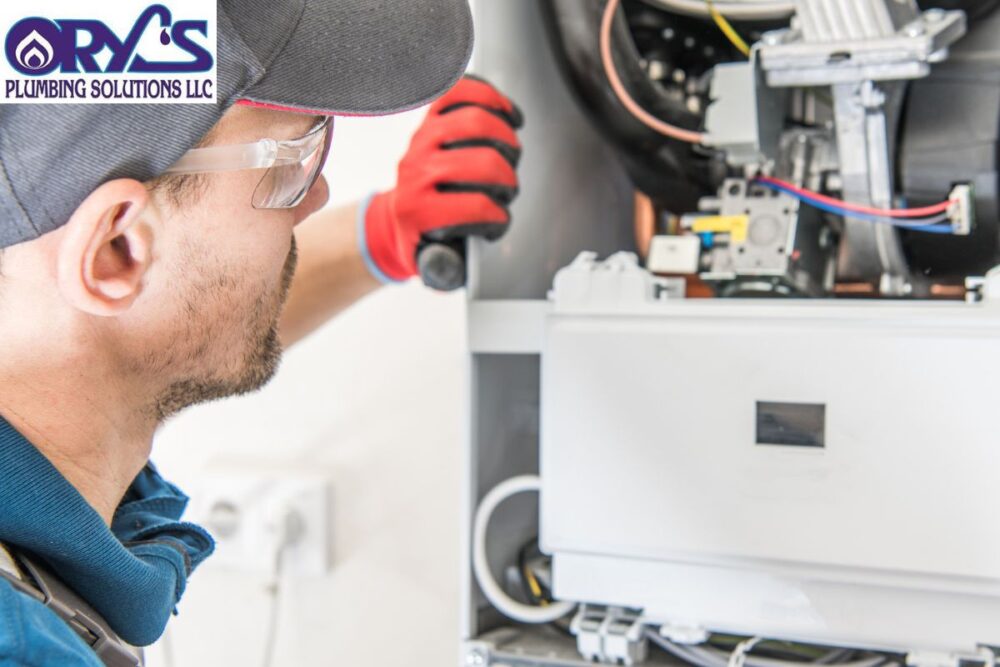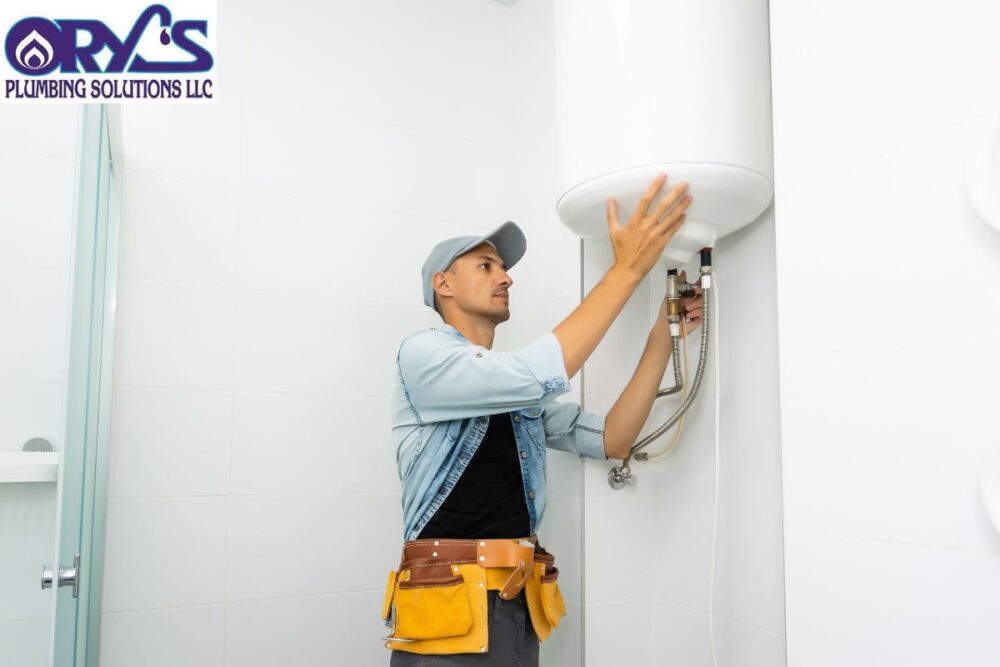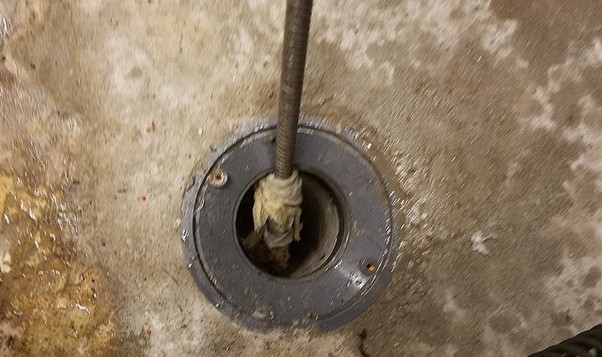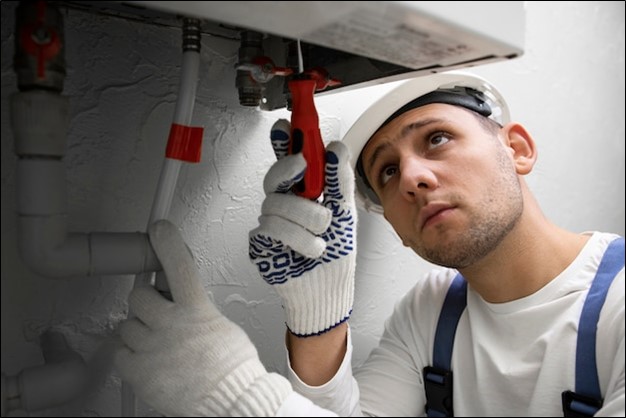Water Heater Breaker Keeps Tripping? What To Do
Key Takeaways
- A water heater breaker trips due to overload, faulty parts, wiring issues, or leaks.
- Common causes include burnt heating elements, bad thermostats, sediment buildup, or aging breakers.
- Resetting the breaker repeatedly is unsafe; inspect components or call a professional.
- Regular maintenance and proper settings help prevent future breaker trips.
When your water heater repeatedly trips its circuit breaker, it often indicates an underlying issue that needs attention. This problem can be caused by various factors, including issues with the water heater components themselves, such as heating elements or thermostats, or external electrical problems like faulty wiring or an overloaded circuit.
Understanding Why Your Water Heater Trips the Breaker
A tripped circuit breaker means that the electrical circuit has been interrupted to prevent damage from an overload or short circuit. If your water heater is causing this, it’s a sign that something is wrong with the unit or its electrical connection. Ignoring the problem and continuously resetting the breaker can be dangerous, potentially leading to overheating wires and even fires.
Why Does a Circuit Breaker Trip?
A circuit breaker is a safety device designed to protect electrical circuits from excessive current, which can be caused by an overload or a short circuit. When the water heater tries to draw too much power, or if there’s an electrical fault, the breaker trips to cut off the power, preventing damage to the wiring and potential hazards.
Common Reasons Your Water Heater Breaker Trips
Several factors can cause your water heater to trip its circuit breaker, ranging from issues within the unit to problems with your home’s electrical system. Identifying the specific cause is important for a proper fix.
Burnt-Out Heating Element
A common reason for a tripped breaker is a burnt-out heating element. When a heating element fails, it can draw too much power or expose the electrical components to moisture, leading to a tripped breaker. Signs of a burnt-out heating element include water that isn’t as hot as usual or a complete lack of hot water. You might also hear popping or sizzling noises from the water heater. Replacing a burnt-out heating element often involves minor electrical work and may require professional help if you’re not experienced with electricity.
Faulty Thermostat
Another frequent cause is a faulty thermostat. Water heater thermostats regulate the water temperature. If a thermostat malfunctions, it can cause the water heater to overheat or send too much electricity to the unit, tripping the breaker. Traditional water heaters typically have two heating elements and two thermostats, with only one element active at a time. If a bad thermostat causes both elements to run simultaneously, it can draw more electricity than the circuit can handle, leading to a tripped breaker. Inconsistent water temperature or intermittent breaker trips can signal a faulty thermostat. Testing the thermostats can help determine if they are malfunctioning.
Malfunctioning Water Heater (Old or Damaged Unit)
An old or poorly maintained water heater can also cause frequent breaker trips. If your water heater is old, typically over eight years, or has been neglected, it might be nearing the end of its lifespan. Aging units can develop various internal issues that lead to breaker trips, making it difficult to pinpoint a single cause. In such cases, it might be more cost-effective to replace the entire unit rather than constantly repairing it.
Sediment Buildup
Sediment buildup in the water heater tank can make the unit work harder than it should, potentially causing the breaker to trip. Hard water minerals like calcium and magnesium can form a thick layer of sediment if the tank isn’t flushed annually. Flushing the water heater regularly helps remove this buildup, improving efficiency and preventing issues.
Wiring Issues
Problems with your home’s electrical wiring, such as loose connections or corroded wires, can also lead to a tripped breaker, even if the water heater itself is fine. If you notice flickering lights, discolored outlets, or trips on other circuits, it could indicate a broader electrical wiring problem. Major electrical work typically requires a licensed electrician.
Water Leaks
Water leaks are a dangerous cause of tripped breakers. If water from a loose pressure relief valve, cracks, or holes in the tank comes into contact with electrical wiring, it can cause a short circuit and trip the breaker. If you see water around your water heater, immediately shut off the circuit breaker and contact a professional.
Aging Circuit Breaker
Sometimes, the issue isn’t with the water heater but with an aging circuit breaker itself. If your circuit breaker is over 25 years old or has tripped frequently (more than three to five times), it might be worn out and tripping unnecessarily. In this scenario, replacing the circuit breaker is necessary, and it is safest to have a licensed electrician do this.
Overloaded Circuit
An overloaded circuit occurs when too many appliances are running on the same circuit, drawing more power than it can handle. This can cause the breaker to trip, and you might notice flickering or dimming lights when appliances are in use. To resolve this, try running appliances on separate circuits or at different times, or consider upgrading the circuit’s capacity with an electrician’s help.

Troubleshooting and Solutions
When your water heater breaker keeps tripping, there are steps you can take to diagnose and potentially resolve the issue, but some problems require professional help.
Initial Checks
Always turn off the power to the water heater at the circuit breaker before performing any inspections or repairs. Check if the circuit breaker for your water heater has tripped. If it has, flip it completely to the “OFF” position, then back to “ON”. If the breaker continues to trip, or if you suspect electrical issues, do not keep resetting it, as this can be dangerous.
Testing Components
- Heating Element: Look for signs of a burnt-out element, such as a lack of hot water or strange noises. You can test heating elements with a multimeter. Replacing a heating element involves disconnecting wires and unscrewing the old unit before installing a new one.
- Thermostat: If the water temperature is inconsistent or fluctuates between too hot and too cold, the thermostat may be faulty. You can test the thermostat for continuity with a multimeter after turning off the power. If there’s no reading, it needs to be replaced.
- Wiring: Inspect all wires and connections at the water heater and in the electrical panel for damage, such as frayed wires or burn marks, and tighten any loose screws.
When to Call a Professional
Many water heater and electrical repairs should be handled by trained professionals. You should contact a local water heater contractor or electrician if you have a water leak, a faulty water heater, bad wiring, or a burnt-out heating element. Professionals can assess your electrical system, identify the problem, and safely make repairs or recommend replacements. The average cost for a plumber ranges from $180 to $500, with water heater repairs costing between $220 and $980
Preventive Measures to Avoid Breaker Trips
Taking proactive steps can help prevent your water heater from tripping the breaker and ensure a consistent hot water supply.
Regular Maintenance
Schedule an annual inspection and tune-up with a professional plumber to catch problems early. Routinely check your water heater at least once or twice a year for signs of leaks or corrosion. Flush your water heater tank annually to prevent sediment buildup, which can cause the unit to work harder. Also, consider replacing the anode rod about every five years to prevent tank corrosion.
Electrical System Care
Keep an eye out for loose or damaged wires connected to the heater, especially at the top junction point. Ensure connections in your electrical panel are tight, and replace the breaker if it’s damaged. Avoid overloading your circuit by not running multiple high-power appliances simultaneously on the same circuit as the water heater. If your budget allows, opt for a dedicated circuit for your water heater to ensure it has enough amperage.
Proper Temperature Settings
Set your water heater thermostat to around 120°F (about 49°C) to prevent scalding and conserve energy. Lowering the temperature can also reduce wear on the heating element, extending its lifespan.
Conclusion
Addressing a tripping water heater breaker promptly is essential for safety and to maintain a consistent hot water supply. By understanding the common causes—from faulty heating elements and thermostats to wiring issues or an aging unit—you can better diagnose the problem. While some minor issues can be checked yourself, it’s often safer and more effective to call a qualified professional for complex electrical or plumbing repairs.
Regular maintenance and timely repairs can prevent future trips and extend the lifespan of your water heater. If you’re unsure about the cause or uncomfortable performing electrical work, always consult a licensed electrician or plumber to ensure the job is done safely and correctly. Taking proactive steps will help you avoid disruptions and keep your home’s hot water system running smoothly.
Frequently Asked Questions (FAQ)
Why does my circuit breaker keep tripping for my water heater?
The breaker usually trips due to an electrical overload or a short circuit caused by issues like a faulty heating element, a malfunctioning thermostat, loose or damaged wiring, water leaks, or an overloaded circuit. It’s a safety mechanism to prevent damage and fire hazards.
Can I reset the water heater breaker myself?
Yes, you can reset it by flipping it completely to the “OFF” position, then back to “ON.” However, if it trips immediately or frequently, do not keep resetting it. This indicates a serious underlying issue that requires professional attention, as continuous resetting can be dangerous.
How do I know if my water heater’s heating element is bad?
Signs of a bad heating element include insufficient hot water, no hot water at all, or strange noises like popping or sizzling coming from the water heater. A multimeter can be used to test the element’s continuity, but this should be done with the power off.
How much does it cost to fix a tripping water heater breaker?
The cost varies depending on the cause. Simple fixes like tightening a loose wire might be inexpensive, but replacing a heating element or thermostat could range from $150 to $400. More extensive electrical work or a full water heater replacement could cost significantly more, ranging from $500 to over $2,000.
Is it safe to use a water heater if the breaker keeps tripping?
No, it is not safe. A continuously tripping breaker indicates an electrical problem that could lead to overheating, electrical shocks, or even a fire. You should immediately stop using the water heater and have it inspected by a professional.
Looking for more tips to keep your water heater running smoothly? Check out our other helpful guides:
- Learn about the common problems of water heaters
- Find out how long a hot water heater lasts
- Discover what size tankless water heater you need
- Know the signs of a failing water heater
- Learn how long a water heater takes to heat up
- Understand what causes a tankless water heater to stop working
- Decide if you should repair or replace your water heater
- See what causes a gas water heater to stop working
- Learn why an electric hot water heater stops working
- Find out what causes a water heater to leak
- Know what to do if your water heater leaks



